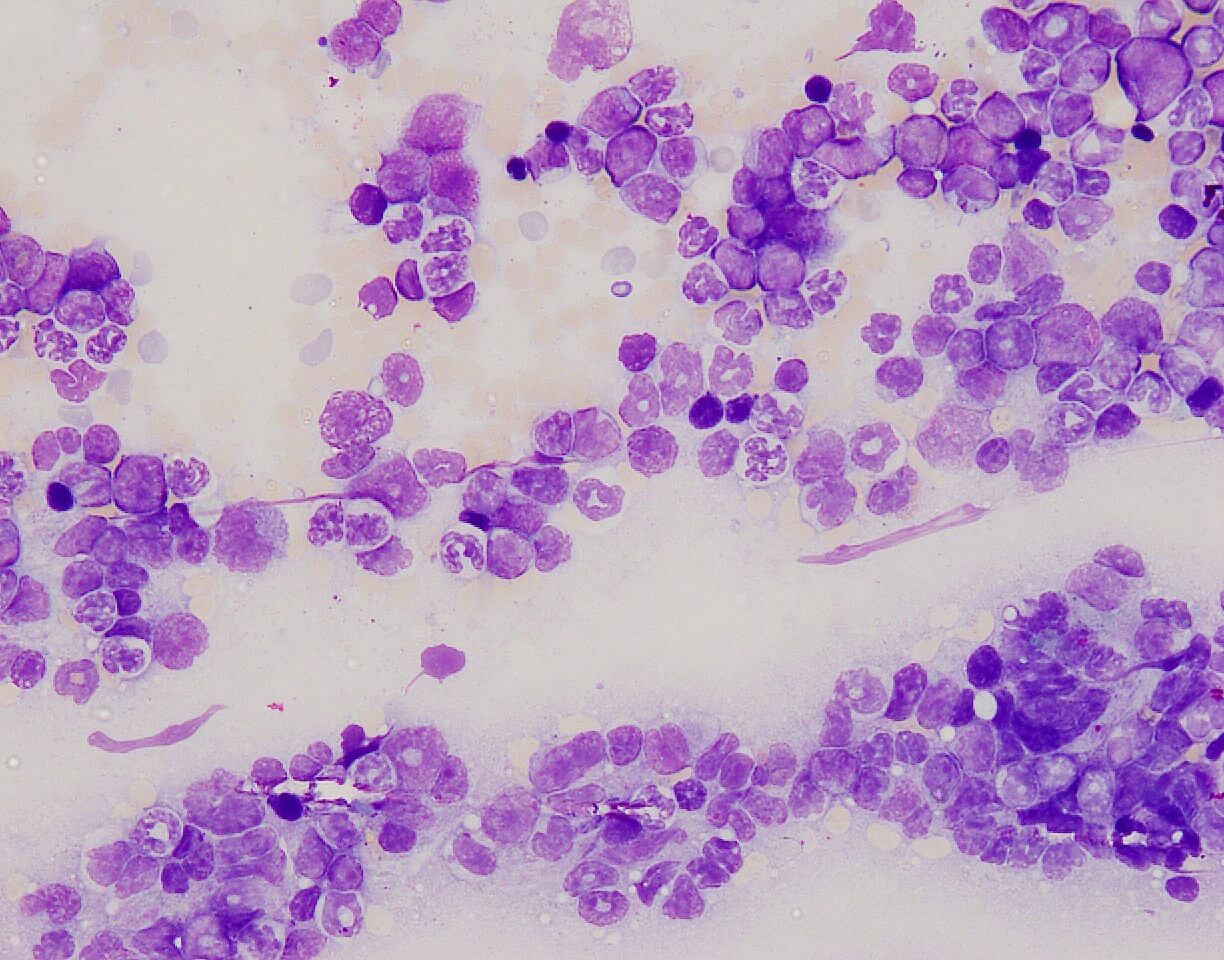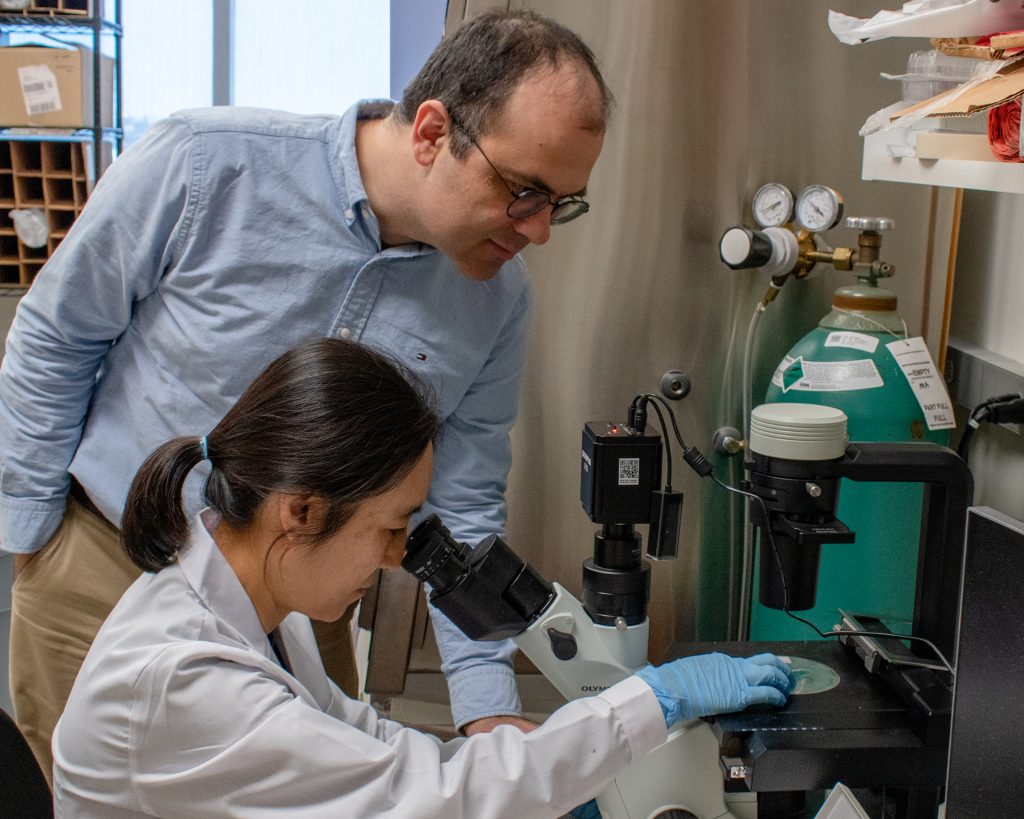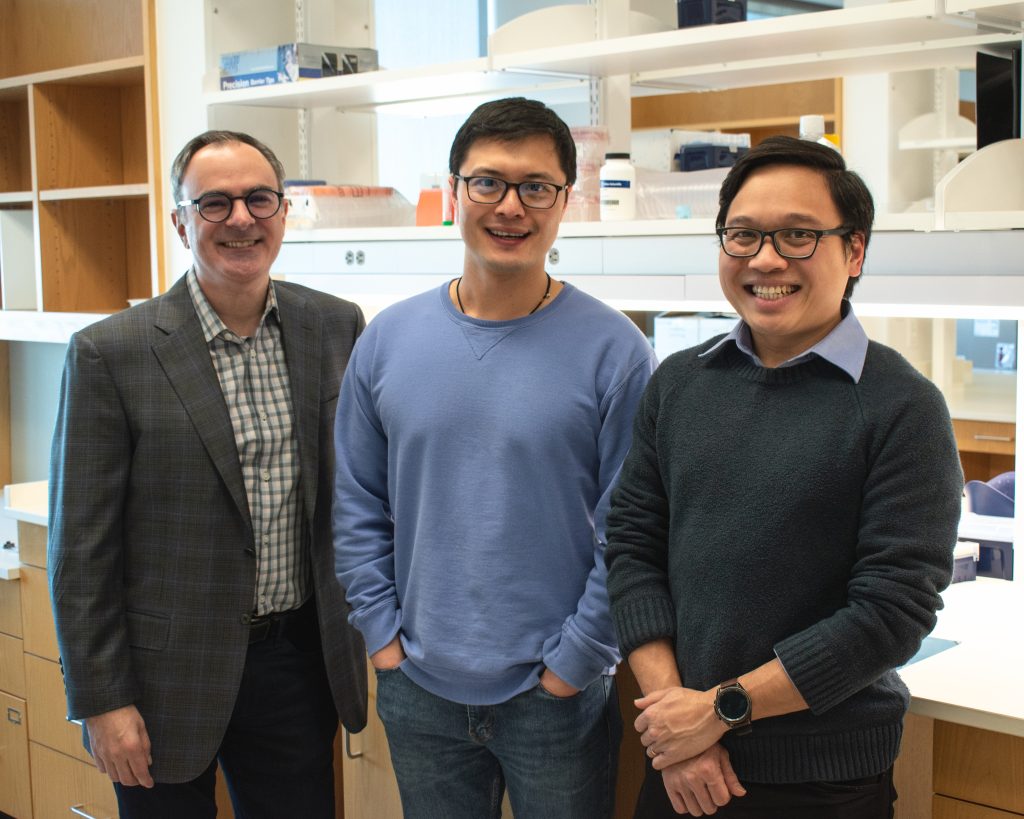
Mutations in certain DNA sequences known as noncoding regulatory regions have the ability to rewire how genes are expressed during blood-cancer development, according to new research from Dr. Jian Xu’s lab at the Children’s Medical Center Research Institute at UT Southwestern (CRI). The findings could lead to new cancer-diagnostic biomarkers and therapeutic targets.
Noncoding DNA sequences account for 99% of the human genome and can contain regulatory information that determines where and when protein-coding genes are active. The role of mutations in noncoding regions has been overlooked by conventional genome-sequencing analysis which is often focused on how genetic alterations in protein-coding sequences drive cancer formation.
The study, published in Cancer Discovery, a journal of the American Association for Cancer Research, describes new approaches to identify cancer-associated mutations in noncoding DNA sequences in human leukemia. This work builds on earlier research from the Xu lab that was published in Cell.
“A major limiting step towards understanding how damage to noncoding DNA sequences influences human cancer is the lack of high throughput and unbiased approaches to assess their biological effects,” said Dr. Xu, senior author of the study and assistant professor at the CRI and the Department of Pediatrics at UT Southwestern.
To overcome this challenge, a team of investigators in the Xu lab developed an integrative approach to identify and characterize alterations of noncoding DNA in human leukemia that combined a number of different tools and methods (e.g., targeted deep sequencing of blood-associated regulatory DNA sequences, mutation discovery, CRISPR/dCas9-based epigenetic-editing screens, and mouse modeling).
Researchers found cohorts of noncoding regions associated with regulatory sequences that could promote or suppress tumor development such as the KRAS enhancer. While KRAS-activating mutations are relatively rare in blood cancers, this study found that when frequent mutations at the KRAS enhancer occurred, it could activate KRAS gene expression in a subset of leukemia samples. This resulted in enhanced cancer-cell proliferation in response to hormonal signals known as nuclear receptors.
These findings support the idea that changes in recurrent noncoding regions can affect how regulatory sequences behave and influence associated genetic pathways to control cancer-cell phenotypes.
“We are excited that the tools we’ve developed offer the research community an integrative framework to identify and functionally dissect noncoding regulatory variants in other human disorders,” says Dr. Xu.
Additional authors from the Xu lab include Drs. Kailong Li, Yuannyu Zhang, Xin Liu, Yuxuan Liu, Zhimin Gu, Hui Cao, and Kathryn Dickerson, and collaborators in the Department of Pathology (Drs. Mingyi Chen and Weina Chen), the CAS-MPG Partner Institute for Computational Biology (Dr. Zhen Shao), and the CRI’s Genetics and Metabolic Disease Program (Dr. Min Ni).



